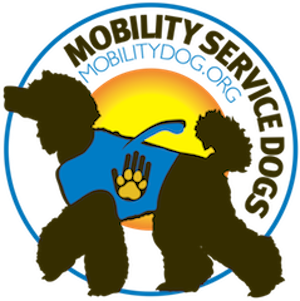Smart Fun for Your Smart Dog!
Large Brown and White Dog Running with a Ball in his Mouth
We all know that physical exercise is as important for our dogs as it is for us. Dogs also need cognitive and emotional stimulation (again, like us humans) to be fully healthy. Those daily walks and a little fetch in the backyard are great, but conscientious dog guardians can do more to ensure the comprehensive health and well-being of their canine companions.
Below are some suggestions.
The Original Kong Dog Toy
Earning Their Food
A Kong is one of the original food puzzles for dogs, building solving skills and training tenacity, complete with a reward. Fill the kong with peanut butter and freeze it for maximum challenge. Check out the Kong website for ideas and recipes for stuffing the Kong and new unique shapes!
Or consider enhancing your dog’s skills at Three Card Monty (otherwise known as the shell game). Take three cups, put a treat under one of the cups, making sure your pooch sees where the treat is hidden. Then shuffle the cups and watch the fun begin. Take a video and upload it to YouTube and your pet may well become a star.
Sniffing and Exploring on Walks
A walk can be more than physical exercise for you and your pet. Your dog has something like 300 million olfactory receptors – about 50 times more than your own nose! Let him put them to good use as you cruise around the neighborhood. Put your phone in your pocket and pay close attention to what your dog is sniffing. Don’t let him go muzzle deep into unpleasant leftovers or get too close to dangerous items. Always keep a tight leash on him if he sniffs out and wants to chase a squirrel, lizard or coyote.
Challenge Your Dog with Naming Their Toys
Naming Their Toys
Recent research suggests that dogs are about as smart as two-year-old humans (and much better behaved). A dog can develop a vocabulary of as many as 250 words. The record-holding border collie reportedly mastered a lexicon of 1,000 words. That dog may have had a Harvard PhD – this was not reported. But all dogs love the “where’s your toy” game, with different terms for the beloved tennis ball and the chewy rubber bone. Place the toy in question in front of the dog and touch it, giving it the name you want to use. Repeat until the dog touches the toy and then praise and reward.
Learning New Tricks
Can your dog roll over, give a high five, do a nose touch? Increasing the animal’s repertoire of tricks engages them and sparks their connections with the appreciative humans who witness and take part in their cleverness.
If your pooch is both clever and athletic, consider training her to run an obstacle course. She’ll experience both cognitive and physical challenges and you’ll have a highly accomplished pet.
Keep Your Dog Stimulated with New and Interesting Toys!
But what if your dog is a senior citizen? The old adage that we can’t teach an old dog new tricks is only partially true. On the one hand, declining health, dulled senses or mobility hindrances can certainly limit a dog’s learning capacity (like our own, for that matter). On the other hand, elder canines can still learn new skills if their human companions are patient and aware of age-related issues.
A study conducted at the University of Vienna's Clever Dog Lab tested dogs’ ability to distinguish specific objects. The study found:
Dogs around 10 years of age required more than twice as many repetitions and corrections as did puppies six months to one year old.
Older dogs outperformed the young pups in logic and reasoning tasks, suggesting that experienced dogs stubbornly refuse to unlearn what they already know.
No age difference in dogs' ability to retain their training.
As a conscientious dog guardian, be aware of your pet’s joint pain, vision or hearing loss and decline in energy. Take these into account as you consider what new activities are best suited to your senior pooch. Nevertheless, the good news is that older dogs can still learn new things. You may simply need to invest more time and patience than you did when Sheila was a pup.
Runs at the dog park are great physical exercise, but your canine companion needs more. She is about as smart as that toddler next door, and just as eager to learn about the world she experiences. Give her the opportunity to develop and show off her intellect. Helping your dog to grow cognitively challenges her, enriches her life and strengthens the bond between you.




